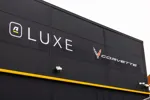Separate investigations into complaints against BMW/Mini and General Motors from dealers concerned about their freedom to multi-franchise (AM, March 24) have prompted Brussels to issue an important clarification on the 1400/2002 Block Exemption Regulation.
It advises that dealers can refuse to implement a manufacturer’s branding in parts of the dealership not dedicated to that brand, are not forced to use a manufacturer’s recommended dealer management system, and that sales or performance targets must not restrict a dealer’s ability to sell another brand.
“This is a classic example of European legislation being used in a purposeful way,” says Neil Baylis, competition specialist at City law firm Kirkpatrick & Lockhart Nicholson Graham LLP.
“The European Commission and the courts are determined to ensure that the aims of this law are achieved. Many of the points included in the Block Exemption Regulation have needed some interpretation in order for dealers and manufacturers to be able to put them into practice. This case could have a significant impact on dealers because it clarifies exactly where they are able to save on costs with their multi-franchise businesses.”
Memo 06/120 has been issued by the Commission following complaints from the European BMW Dealers’ Association and French, German, Spanish and Italian Opel dealers’ associations. Both BMW and GM have agreed to remove certain elements from their franchise contracts that the Commission determined were restrictive.
The Commission also identified a potential deterrent to multi-branding in the way carmaker’s set and evaluate sales targets and dealer performance – one of GM’s measures was based on a comparison of a dealer’s local market share with the brand’s national market. GM has now agreed targets will be mutually agreed with dealers, subject to arbitration if a dispute arises.
“The changes ensure that dealers and repairers are not restricted in selling or servicing cars of competing brands (multi-branding) and that all repair-shops who fulfil the necessary quality standards can become members of the authorized network,” says a Commission spokesman.
Freedom for repairers
While Block Exemption regulations already allow any workshop to join a carmaker’s authorized repairer network providing it meets the requirements, the Commission has reminded manufacturers that these standards should be based on quality of repair and service, not quantity and capacity.
Both GM and BMW have now introduced an ‘opening clause’ to servicing contracts telling repairers that they are free to source all workshop equipment, tools and IT systems from alternative suppliers providing that equivalent functionality and quality is assured.
It also makes explicit that repairers are free to cooperate in joint initiatives concerning spare parts purchase and warehousing in order to save costs. This follows the Commission’s clarification that carmakers can only require repairers to keep stocks of fast-moving replacement parts on their premises.
#AM_ART_SPLIT# Main points of Memo 06/120 at a glance














Login to comment
Comments
No comments have been made yet.